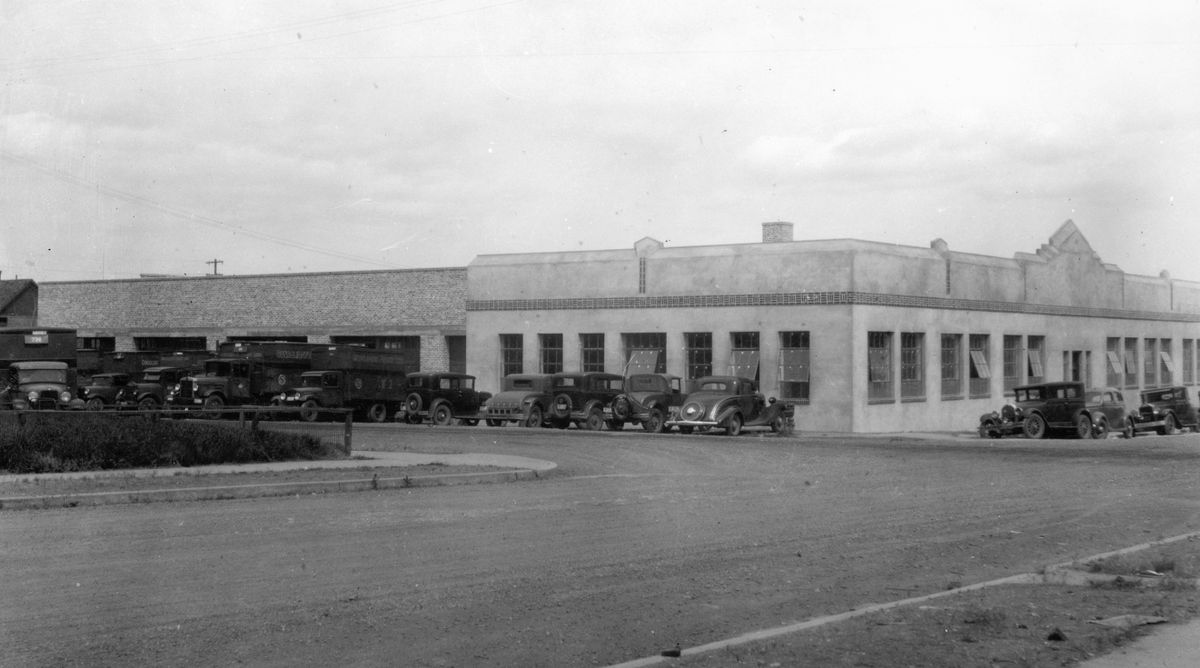Then and now: Consolidated Freight Lines

Leland James, a Portland truck driver, built a trucking empire. He started by buying Portland-Spokane Auto Freight and a handful of other firms in 1929. He called his new company Consolidated Freight Lines. Around 1935, Consolidated built a new office and warehouse at 126 S. Sheridan St. in Spokane.
Consolidated also bought Freightways, a truck manufacturer, and CF became Consolidated Freightways. The truck brand became “Freightliner,” which would become an industry icon. James’ designed cabover tractor units, which were shorter and allowed the use of longer trailers. Efficiency was improved with aluminum parts, which were lighter than steel. CF was first to piggyback new tractors and trailers for overland transport, replacing the use of rail cars. Consolidated initiated lawsuits to fight length limits on multiple trailer units.
At the new CF Spokane headquarters on Sheridan Street, word leaked out that a small strip of the land was owned by the county. Henry Groenen, a bail bondsman, asked the county to sell the land at auction in 1939. Groenen outbid CF, paying $1,000 for the tiny plot. The trucking company sued, saying the plan was to extort money from the successful company. An appellate court upheld Groenen’s ownership, but another judge ruled that because Groenen bought the land knowing that there was part of a new building on it, he must either sell at the appraised value of the land, about $600, plus a little rent, or pay Consolidated the cost of the new building that sat on Groenen’s parcel, approximately $4,000.
CF, affectionately nicknamed “Corn Flakes” in the trucking world, would grow to be the third-largest trucking firm in the nation. There were 63 stations like Spokane’s, stretching from the West Coast to Chicago, in 1952. The company was also involved in warehousing, manufacturing, air cargo and other businesses. Freightliner was sold off to Daimler Benz AG in 1981.
The 73-year-old firm shut down suddenly in 2002, laying off 15,000 employees, after seven straight quarterly losses. A Consolidated spin-off, under the name Con-Way, emerged from bankruptcy as a leaner, non-unionized company. Con-Way was bought by XPO Logistics in 2015.